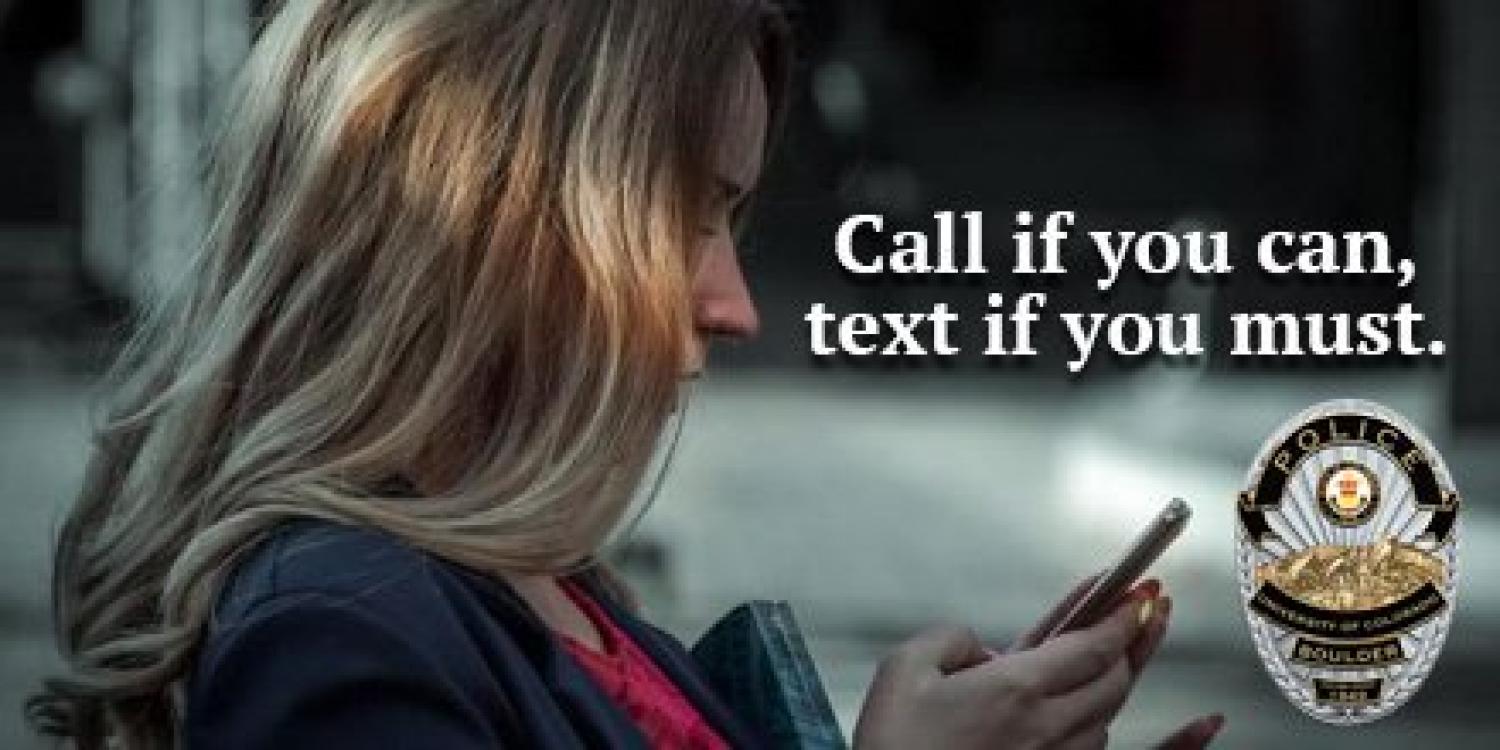CUPD Dispatch Center Now Receiving 911 Text Messages

In Boulder County, you can call or text 911. While texting is a great feature, texting 911 should only be used in specific situations and for specific reasons.
“Calling 911 instead of texting is a more effective way of communicating and allows our dispatchers to give more concise instructions to the caller before first responders arrive on scene,” said Melissa Hart, CU Police emergency dispatcher.
The slogan for this program is “Call if You Can, Text if You Must” and texting to 911 should only be used in special situations.
“Texting is a tool for people to use when it is not safe for them to speak because of an immediate threat,” Hart said. “It also now allows our hearing-impaired and speech-impaired communities to reach 911 directly.”
“Text-to-911” can also be used when voice connectivity is unavailable either because of limited cell service or overwhelmed phone lines.
If you do need to send a text, it should be simple, brief and concise and should not use abbreviations. You are not able to send photos or videos to 911.
Unlike with voice calls, dispatchers will not automatically receive location information. For this reason, if it is necessary to send a text message, it is important to include an accurate location or address in the message as quickly as possible.
Text-to-911 service is enabled on the four major cell phone carriers in the Boulder County area: AT&T/Cricket, Sprint, T-Mobile and Verizon. All other smaller carriers should be enabled for texting within the next six months. If your carrier does not support 911 texting at this time, or if you are in a location that cannot send/receive text messages, you will receive a bounce back message. Regular text message rates will apply with this service.

